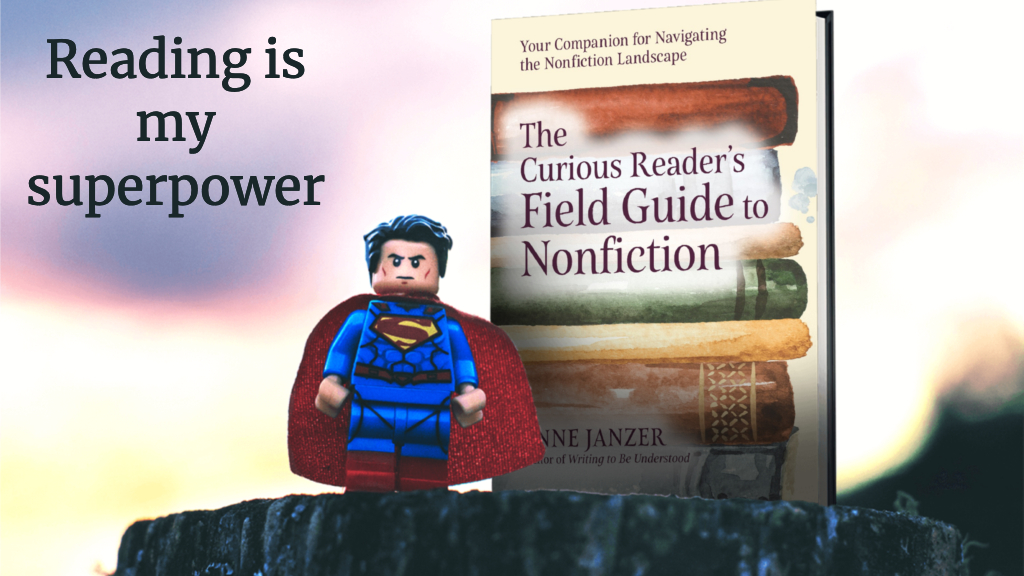Want to expand your nonfiction reading and need a few recommendations? Here is a curated list of a few of my favorites—books that left a lasting impression. If any of them are new to you, check them out.
A few disclaimers: My preferences may not match yours. And this is only a partial list of books that I adore. I’ve tried to include only those that have stayed with me long after I’ve read them, or otherwise had a lasting impact.
See if any of them strike your fancy.
“Big Idea” books that really stuck with me
4,000 Weeks by Oliver Burkeman. I’ve re-read this book once already, and gifted it to several people. The writing is beautiful and the insights important.
Quit by Annie Duke. Wonderful use of stories and data, incredibly relevant insights (for me, at least).
Slow Productivity by Cal Newport. I love the relevance of Newport’s ideas and the simplicity with which he presents them. Read my review here.
Quiet by Susan Cain. This book gives you better insight into the introverted half of the world (which includes me). Another book that I’ve passed on to multiple people.
Think Again by Adam Grant. My favorite work by Grant might be a tie between this one and Give and Take, which has also stuck with me. Memorable ideas reinforced by data and effective storytelling.
Histories with great storytelling
In the Garden of Beasts by Erik Larsen. Really any Erik Larsen book is worth reading. He does a wonderful job of finding the incredible stories in history.)
A World Lit Only by Fire by William Manchester. A fascinating dive into medieval history.
River of Doubt by Candice Millard. An adventure tale featuring a former president. Fascinating, and a page-turner.
Endurance: Shackleton’s Incredible Voyage by Alfred Lansing. I love a good polar explanation tale, and this tops them all.
Team of Rivals by Doris Kearns Goodwin. Kearns’ portrait of Lincoln has really stuck with me years after reading it.
Current or recent events (journalistic)
Bad Blood by John Carreyrou. Compelling story of Theranos that reads like a thrilled. Great storytelling and investigative journalism.
The Smartest Guys in the Room by Bethany McLean. The riveting story of Enron and its collapse.
The Big Short by Michael Lewis. Lewis takes complex financial stories and makes them epic character stories. It’s an incredible skill.
Science (and social science) books that stuck with me
Breath by James Nestor. Researched like an investigative journalist, it does a deep dive into something we take for granted—breathing.
Invisible Women by Caroline Criado Perez. A great example of data journalism that shows us the biases in the way we collect data—and the real-world consequences of those biases.
Thinking Fast and Slow by Daniel Kahneman. A deep introduction to cognitive biases that set me on the path of exploring behavioral science and decision making.
The Confidence Game by Anna Konnikova. Research and stories into how and why we fall for the cons. Fun and fascinating.
Being Mortal by Atul Gawande. An important book about life’s endings.
Nature
Braiding Sweetgrass by Robin Wall Kimmerer; Nature through the triple lens of biology, indigenous wisdom, and poetry. Wow.
The Death and Life of the Great Lakes by Dan Egan. Wow, I grew up in the midwest and did not know the stories happening beneath the surface. Egan does a great job of making science and nature fascinating. See also his book The Devil’s Element — about phosphorus!
The Comfort of Crows by Margaret Renkl. Unlike the other books on this list, this one invites you to slow down and simply accompany Renkl through the slow progression of the year. It’s both simple and profound, and has inspired me to engage differently with the world around me.
A World on the Wing by Scott Weidensaul. New insights into bird migration.
Books about language, reading and writing
Says Who by Anne Curzon. A recent entry to this list, already it has made me look at language differently. See my review.
Reader, Come Home by Maryanne Wolf. Science and reading? Yes, please. Wonderfully written, it’s made me tend my reading habits more carefully.
Working Days: The Journals of the Grapes of Wrath by John Steinbeck. I love this book for the insight it offers into the writing process. Imposter syndrome, hangovers, noisy neighbors—it’s all there.
The War of Art by Steven Pressfield. I read this when first setting out on my writing path. And I will revisit it.
